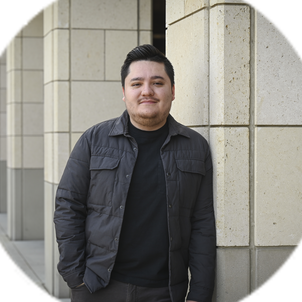I’d ask my parents questions like “Why haven’t we found life away from Earth?” and “What’s inside a black hole?” They’d tell me they didn’t know, so I began watching YouTube videos about outer space, how stars are formed, and all the things about the universe that are still a mystery. I’d take that information and try to explain it to my parents. I didn’t know any engineers at that time, but in high school, the robotics club and my computer science classes pushed me, and when it came time to apply to colleges, I knew I wanted to focus on engineering, because it incorporated the math and physics that interested me.
At Cornell, I focused on mechanical engineering because I knew that was a field where people were building rockets and aircraft. I was able to take part in the school’s Design Build Fly project team, which gave me the chance to be part of a competitive team building a radio-controlled aircraft and taught me about computer-aided design. Then I was able to join the Space Systems Design Studio research lab, where we built a small satellite that fits into your hand. These opportunities came up by chance, but really rounded out my college experience. I kept discovering new depths within mechanical engineering that built on each other and kept me diving deeper into the field. By the time I got to Stanford for my master’s program, I was interested in dynamics and controls to build spacecraft or robots.
At Stanford, I’m focusing on mechatronics, where I combine mechanical systems with electronics and low-level software, which instructs a computer in how to manipulate hardware. One of the things I love about engineering is that you’re always running into new problems. You can find people to give you guidance, but a lot of the time you just have the tools in the toolbox you developed during your education, and you have to put the pieces together and figure it out. It can be scary, because a lot of responsibility is placed onto teams of engineers, and people’s lives may depend on technologies that engineers develop. But to me, this is also motivating, because you know you may one day play an important role in the world, and that the decisions you make as an engineer matter.
Related spotlights

Adrienne Propp

Lara Weed

